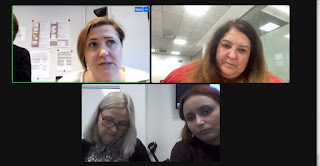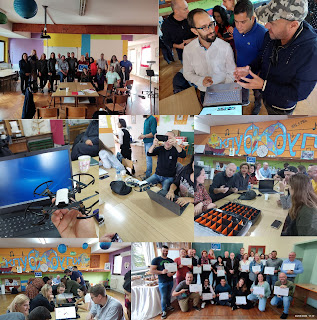As teachers of social studies, many times technology and its use is
seen as a threat. Not being in our area of expertise its application can be
scary sometimes, mainly because we also know our students are probably more savvy
then us in handling technology. We know that, if our mobile phones are now an
extension of our arms, in their age this phenomenon is a lot more real.
It's not possible to say, although, that we should exclude technology as
a teaching tool. On the contrary, I believe the situation we are in and the way
the world is evolving, make it urgent to use more and more different kinds of
technology, not only as a teaching tool but as a motivation factor.
The several workshops performed in the Brakel meeting were quite
enlightening in this aspect. First we learned that its not really about the
specific technological tools, its about the ability to adapt them to several teaching
learning processes and using them in way that captures students attention. It
can be more motivating a simpler tool used in key moments of a class, a tool
that the teacher is absolutely comfortable managing and using, than a complex
tool that the teacher cannot control or feels insecure about.

Adapting the objectives of the class, online or not, to the tools used is essential.
We already know this and realize its not different when it comes to
technological tools. It is also essential to adapt tools to the characteristics
of students. To different publics, varying in age, motivation, capacities,
learning disabilities or even the awareness to the subject in question, we can
adjust and insert digital tools with different purposes.
We also learned about several concrete digital tools and applications
that are transversal to all subjects, such as Thinkercad, 3D printing and virtual
reality games.
Here we also focused the importance of interdisciplinarity. As
a VET school, our students are more oriented to practical activities, and
the use of software as Thinkercad and
all the possibilities of application works in itself as a big factor of
motivation.
As a final thought about all the things we learned, I believe that the
key is to use technology in a confident though secure way. If we manage to use
technology in our favor and make it work to accomplish our goals, instead of working
in favor of technology, we’ll be able to close up the generation gap between
teachers and students.
Patricia
Lopes and Marta Lopes
Teachers of Social Studies – INETE
























